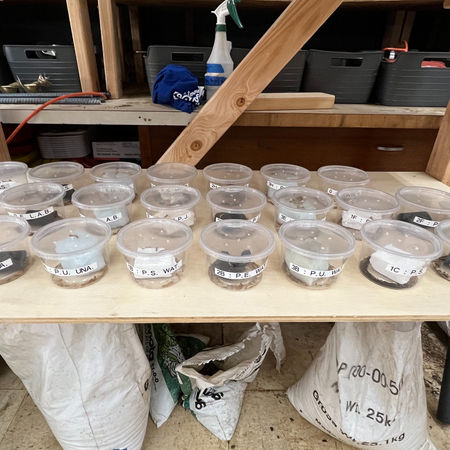
Accelerating Mealworm Plastics Consumption (2023)
Over the course of 2023, I had researched how to accelerate the process of mealworm plastic consumption/biodegradation using multiple chemical and natural additives.
Driven by a passion for environmental responsibility, nurtured by my upbringing in Hawaii and amplified by my membership in the FFA, I sought a scientific solution to plastic pollution, a major threat to agriculture and ocean life. Witnessing the devastation plastic inflicts on our beaches, food security, and land fueled my determination. Microplastics are already compromising agricultural soil fertility, reducing the potential of our precious farmland. Similarly, ocean plastic pollution disrupts marine and freshwater food chains, jeopardizing human health and food security.
My study investigated the potential of Tenebrio Molitor (mealworms) supplemented with Indigenous Microorganisms (IMO-2) as a sustainable solution to plastic pollution in agriculture. By observing mealworm groups fed different diets, I analyzed their plastic consumption, life stage progression, and ability to complete their life cycle.
The results were groundbreaking. Mealworms supplemented with the inoculant Indigenous Microorganisms-2 (IMO-2) (groups 1f, 2f, and 3f) consumed significantly more plastic compared to the control groups: 3.14 times more polystyrene, 1.28 times more polyethylene, and 1.66 times more polyurethane. Notably, IMO-2 also extended the mealworm form duration (maximizing feeding time) and boosted the transformation rate into beetles (facilitating breeding and future generations of plastic-consuming mealworms). Importantly, no microplastics were detected in the plastic diet waste.
These findings offer a beacon of hope. While skepticism persists regarding mealworms' efficacy due to their slow consumption rates, my research demonstrates that IMO-2 significantly amplifies their plastic-eating abilities. This paves the way for a natural and organic solution to the agricultural plastic pollution conundrum, and potentially, a broader global impact.
My research would go on to be awarded 1st place at the National Future Farmers of America (FFA) Agriscience Fair in the 2023 Division 1 Natural Resource and Envrionemental Resource Systems category. My research paper can be viewed below.
Project Gallery








